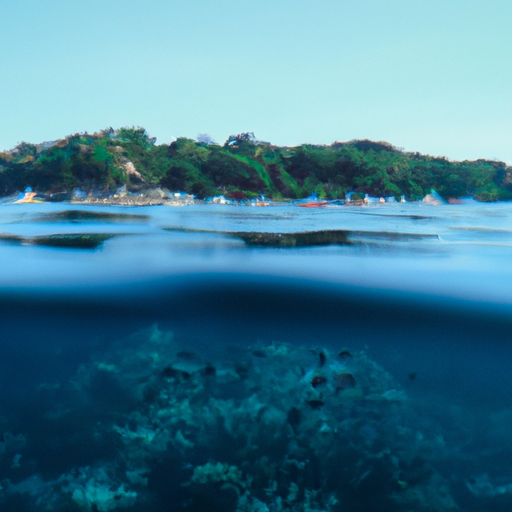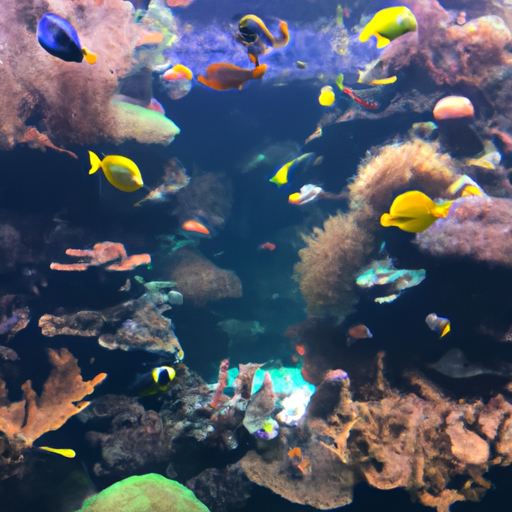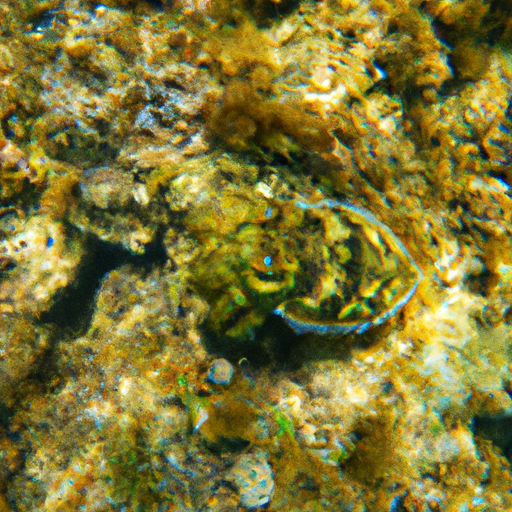
The Importance of Marine Life Conservation: Exploring Challenges and Solutions
Marine life conservation plays a crucial role in maintaining the delicate balance of our planet’s ecosystems. However, this important endeavor faces numerous challenges that threaten the sustainability of marine life. From climate change to overfishing, human activities are taking a toll on the delicate and diverse marine species that inhabit our oceans.
Climate change is one of the most pressing challenges for marine life conservation. Rising sea temperatures and ocean acidification are disrupting the delicate balance marine organisms rely on for survival. Coral reefs, for example, are highly sensitive to changes in temperature and acidity, leading to coral bleaching and the loss of these vibrant ecosystems. Efforts to reduce greenhouse gas emissions and mitigate the impacts of climate change are vital for the long-term sustainability of marine life.
Overfishing is another major threat to marine life. Unsustainable fishing practices, such as trawling and dynamite fishing, have led to the depletion of fish populations, disrupting the food chain and endangering species that rely on these fish for survival. Implementing and enforcing sustainable fishing practices, such as fishing quotas and protected areas, are essential to conserve marine biodiversity and ensure the long-term viability of fish stocks.
Pollution is also a significant challenge in marine life conservation. The discharge of pollutants into the oceans, including plastics, chemicals, and oil spills, pose a grave threat to marine organisms. Creatures such as seabirds, sea turtles, and whales mistakenly ingest plastics, often leading to their death. To combat this issue, efforts to reduce plastic waste, improve waste management systems, and enforce regulations to prevent oil spills are crucial.
Habitat destruction is yet another challenge for marine life conservation. Coastal development, destructive fishing practices, and the destruction of critical habitats, such as mangroves and seagrass beds, threaten the survival of countless marine species. Protecting and restoring these habitats is vital for maintaining a healthy and diverse marine ecosystem.
Efforts towards marine life conservation are being made worldwide. Marine protected areas, where human activities are restricted or regulated, are crucial for safeguarding marine biodiversity. These areas provide a safe haven for marine life to reproduce, rest, and feed, allowing populations to recover and maintain healthy ecosystems. In addition, awareness campaigns, education, and public participation are important for fostering a sense of responsibility and encouraging individuals to make sustainable choices that support marine life conservation.
The challenges facing marine life conservation are complex, but by implementing sustainable practices, raising awareness, and taking action, we can work towards a future where marine ecosystems thrive. It is essential that individuals, governments, and organizations unite their efforts to preserve and protect marine life, ensuring its sustainability for generations to come.
Threats to Marine Life: Understanding the Conservation Challenges
Conservation challenges and efforts for marine life sustainability are crucial in today’s world where our oceans face numerous threats. Understanding these challenges and taking proactive steps to preserve marine life is of utmost importance to maintain the delicate balance of our ecosystems.
One of the primary conservation challenges for marine life is habitat destruction. Factors such as coastal development, pollution, and destructive fishing practices all contribute to the degradation and loss of important marine habitats. Coral reefs, for example, are highly vulnerable to climate change and human activities. These vibrant ecosystems provide crucial habitat for a vast array of marine species, and their destruction can have far-reaching consequences.
Overfishing is another significant threat to marine life sustainability. Unsustainable fishing practices, such as illegal, unreported, and unregulated (IUU) fishing, result in the depletion of fish stocks and disruption of marine food chains. The loss of key species can have cascading effects on the entire ecosystem, leading to imbalances and potentially irreversible damage.
Marine pollution poses yet another challenge to the sustainability of marine life. Pollution from land-based sources, including plastic waste, oil spills, and chemical runoff, can have devastating impacts on marine organisms. This pollution can interfere with reproductive cycles, cause physiological damage, and even result in mortality. Additionally, the accumulation of plastic debris in our oceans poses a significant threat to marine animals, many of which mistake it for food and suffocate or suffer from internal injuries as a result.
In response to these conservation challenges, there have been significant global efforts to promote the sustainability of marine life. Marine protected areas (MPAs) have been established to safeguard critical habitats and populations. These protected areas help restore biodiversity and allow fish stocks to replenish. Furthermore, sustainable fishing practices, such as implementing catch limits and promoting responsible fishing techniques, aim to reduce the impact of overfishing and support the long-term health of marine ecosystems.
Education and awareness campaigns are also crucial in addressing conservation challenges. By raising public awareness about the importance of marine life and highlighting the threats they face, individuals can become more conscious of their actions and contribute to positive change. This includes reducing plastic consumption, supporting sustainable seafood choices, and advocating for policies that protect our oceans.
In conclusion, the conservation challenges facing marine life are multifaceted and require concerted efforts from individuals, organizations, and governments. By understanding these challenges and working towards sustainable solutions, we can ensure the long-term viability and health of our oceans’ precious ecosystems. Only through collective action can we hope to protect and preserve the incredible diversity of marine life for future generations.
Conservation Efforts for Marine Life Sustainability: Promising Initiatives and Strategies
The conservation of marine life is critical for the sustainability of our oceans and the overall health of our planet. However, it is not without its challenges. Overfishing, habitat destruction, pollution, and climate change are among the key threats faced by marine life today. As a result, many initiatives and strategies have been developed to address these challenges and promote the conservation of marine life sustainability.
One of the primary conservation challenges is overfishing. Overfishing occurs when fish stocks are depleted beyond their ability to recover, which can have detrimental effects on marine ecosystems. To combat this, various measures have been implemented, such as the establishment of marine protected areas (MPAs) and the implementation of fishing quotas. MPAs are designated areas where fishing is restricted or prohibited to allow fish populations to recover and ecosystems to restore their balance. Fishing quotas, on the other hand, set limits on the amount of fish that can be caught, helping to prevent overfishing and ensure the sustainability of fish stocks.
Habitat destruction is another significant conservation challenge. Coastal development, bottom trawling, and coral reef degradation are some of the activities that contribute to habitat destruction. To address this issue, efforts have been made to protect and restore marine habitats. For example, artificial reefs have been created to provide alternative habitats for marine species. Additionally, awareness campaigns and educational programs have been launched to promote the importance of preserving marine habitats and the biodiversity they support.
Pollution, including plastic pollution, oil spills, and chemical runoffs, poses a severe threat to marine life. To tackle this issue, strict regulations on waste management and the reduction of single-use plastics have been implemented in many countries. Furthermore, clean-up initiatives and beach cleaning campaigns are regularly organized to remove litter from coastlines and prevent it from entering the ocean. These efforts aim to minimize the impact of pollution on marine ecosystems and safeguard the health of marine life.
Lastly, climate change is a conservation challenge that has far-reaching consequences for marine life sustainability. Rising sea temperatures, ocean acidification, and sea-level rise affect marine ecosystems profoundly. To mitigate these effects, there is a pressing need to reduce greenhouse gas emissions and transition to renewable energy sources. Additionally, research on climate adaptation strategies for marine species and ecosystems is crucial for their long-term survival.
Conservation efforts for marine life sustainability are multi-faceted and require collaboration between governments, conservation organizations, and local communities. By addressing the challenges of overfishing, habitat destruction, pollution, and climate change, we can protect and preserve the incredible biodiversity found within our oceans for future generations.
Collaborative Approaches for Marine Life Conservation: Examples from Around the World
Conservation Challenges and Efforts for Marine Life Sustainability
Marine life conservation is crucial for maintaining the health and sustainability of our oceans. However, it is faced with numerous challenges that require collaborative efforts from governments, organizations, and communities around the world. In this article, we will explore the conservation challenges and highlight examples of successful efforts that have been undertaken in various regions.
One of the primary challenges in marine life conservation is overfishing. Unsustainable fishing practices, such as using destructive gear or targeting vulnerable species, can deplete fish populations and disrupt marine ecosystems. To address this issue, many countries have implemented stricter fishing regulations and established marine protected areas (MPAs) where fishing activities are restricted. These MPAs help protect critical habitats and allow fish populations to recover.
Pollution is another significant threat to marine life sustainability. Chemical pollutants, plastics, and oil spills can have detrimental effects on marine organisms, causing reproductive issues, habitat destruction, and even death. Efforts to combat marine pollution have included stricter regulations on industrial waste disposal, campaigns to reduce single-use plastics, and cleanup initiatives to remove existing pollution from the oceans.
Habitat destruction and degradation also pose significant challenges to marine life conservation. Coastal development, including the construction of harbors, resorts, and infrastructure, often leads to the destruction of essential habitats such as coral reefs, mangroves, and seagrass beds. Restoration projects aimed at rebuilding these habitats have been successful in some areas, where artificial reefs and replanted mangroves have provided new homes for marine species.
Climate change is another critical factor affecting marine life sustainability. Rising ocean temperatures, sea-level rise, and ocean acidification due to increased carbon dioxide emissions have a profound impact on marine ecosystems. Efforts to mitigate climate change include reducing greenhouse gas emissions, promoting renewable energy sources, and adapting to the changing conditions through measures such as establishing resilient marine protected areas.
Collaborative approaches are essential for addressing these conservation challenges effectively. International agreements, such as the United Nations Convention on the Law of the Sea and regional organizations like the European Union, provide platforms for countries to cooperate and develop strategies for marine life conservation. Non-governmental organizations (NGOs) and local communities also play a vital role by raising awareness, conducting research, and implementing conservation projects on the ground.
In conclusion, the conservation challenges facing marine life sustainability are diverse and complex. However, through collaborative efforts and a combination of regulatory measures, habitat restoration, pollution reduction, and climate change mitigation, we can work towards ensuring the health and long-term viability of our precious marine ecosystems.


